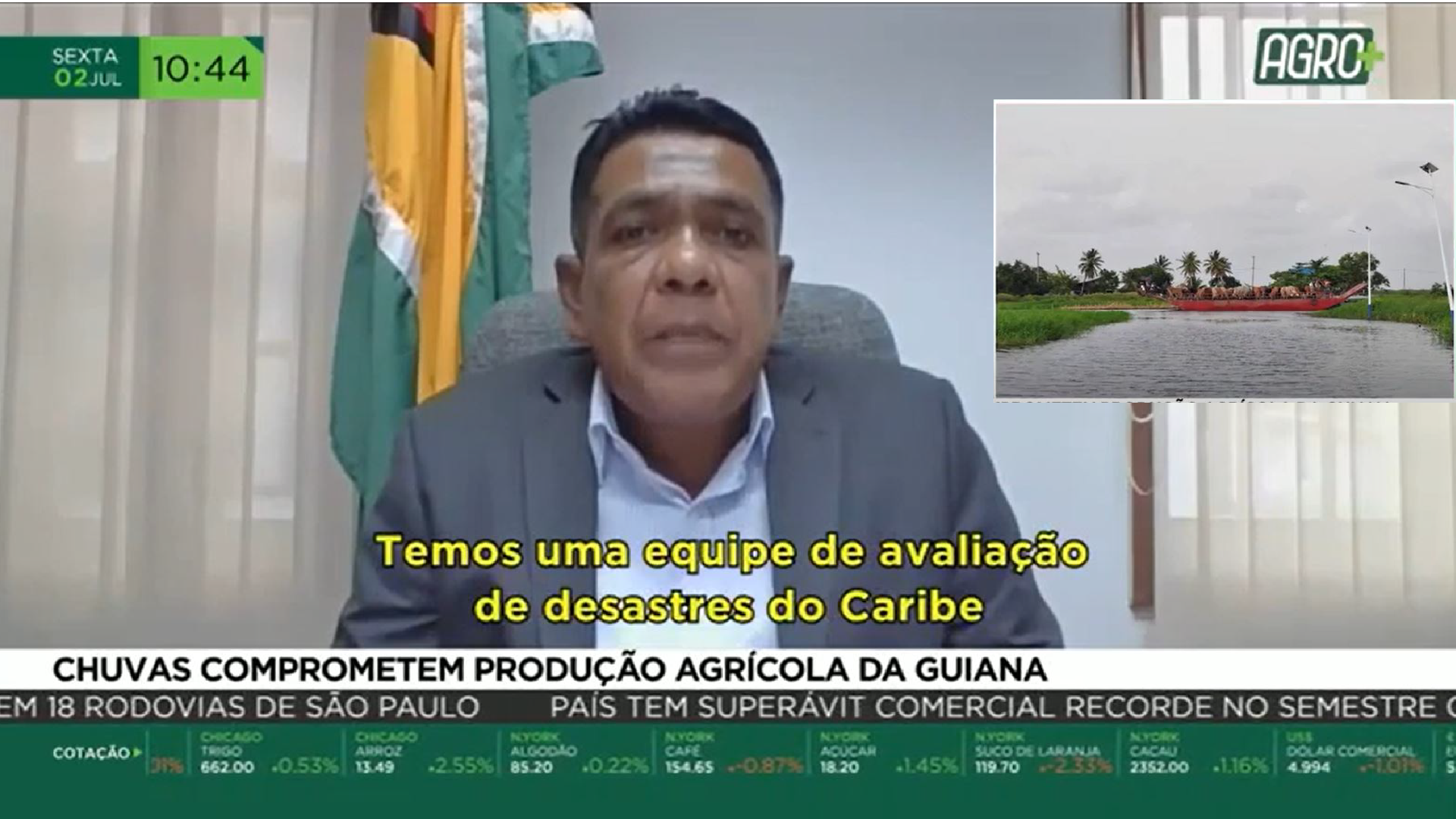In an interview on the Brazilian TV channel, AgroMais, the country’s Minister of Agriculture, Zulfikar Mustapha, explained that, “In some areas, farmers lost 90% of their crops and numerous animals, while many homes were destroyed by the water”.

San José, 13 July 2021 (IICA) – Guyana is in the midst of a catastrophe, due to the flooding devastating a major part of the country, particularly agricultural production, which has suffered losses of crops and livestock, thereby endangering food security.
The Government has declared a state of disaster and is providing food and medicinal assistance to numerous vulnerable communities in inland areas. However, the Administration of President Mohamed Irfaan Ali continues to stress that the situation will require international assistance.
In an interview on the Brazilian TV channel, AgroMais, the country’s Minister of Agriculture, Zulfikar Mustapha, explained that, “Between 24 May and 10 June the magnitude of rainfall has been unlike anything we have experienced since 1981, flooding the 10 administrative regions in the country. Precipitation levels rose to 510 millimeters, overflowing the banks of the Esequibo River, thus affecting several areas. In some areas, farmers lost 90% of their crops and numerous animals, while many homes were destroyed by the water”.
Mustapha reported that assessments of the losses are underway across the country, stating that, “As of today, we already know that some 30,000 families were affected; however, that figure will grow once we have completed our analysis. The waters are subsiding and we will be in a better position to calculate the damage. President Mohamed Irfaan Ali has declared that this is the worst natural disaster that this country has ever faced”.
Mustapha revealed that he had met with the Executive Committee of the Inter-American Institute for Cooperation on Agriculture (IICA) and was grateful for the organization’s assistance to rebuild agriculture in Guyana.
The Minister stated that, “IICA will provide seeds and other inputs. We will need help from many countries and organizations, but we will give a precise account of our needs once we have completed our assessment. Currently, teams from the Ministry of Agriculture are traveling from district to district to examine the situation. The Guyanese agriculture sector was growing and although we have had a setback, we will not stop”.
He also revealed that the rice industry, which is of paramount importance to the national economy, has been seriously affected, as has livestock production, given the loss of hundreds of animals.
Mustapha specified that approximately 16,000 hectares of agricultural crops have been lost and remarked that, “We are working to enable farmers to return to their fields. We need international assistance to build infrastructure to drain off the water and to prevent this type of disaster from reoccurring in the future”.
The minister also fears that the floods will further aggravate the health situation arising from the Covid-19 pandemic. “We are seeing water-related illnesses, such as leptospirosis, diarrheas and gastroenteritis. Our task as a government is to supply food to the affected areas until farmers can get back on their feet, and to also provide medicine to affected communities”.
More information:
Institutional Communication Division
comunicacion.institucional@iica.int











